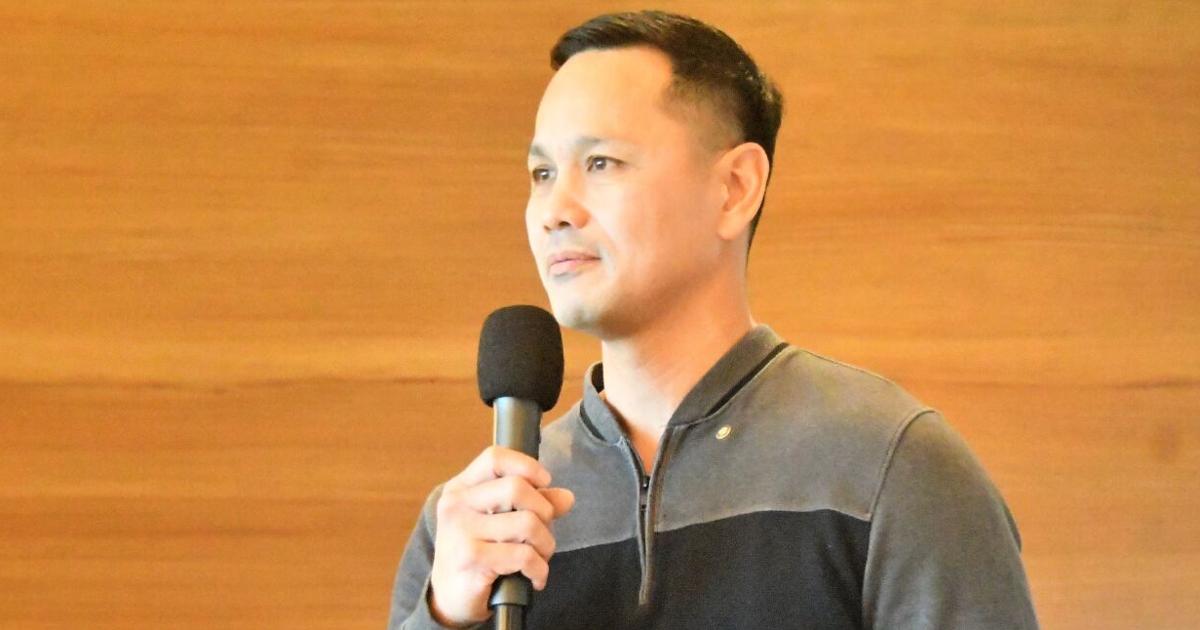Triple J Enterprises chief financial officer Chris Duenas on Tuesday addressed his fellow Rotary Club of Tumon Bay members to share with them that artificial intelligence, or AI, has value in every industry on Guam.
He said the industry is moving so fast, and even those who make a living learning AI can’t keep up, so it’s no surprise that many still don’t know about it.
Duenas asked how many in the audience had used AI at all that day, and about a third of the hands raised. It was about what he expected, saying that it’s probably because most people don’t know where to access AI, and especially, how to use it.
“It’s a solution to one of your problems,” said Duenas, before getting right to the demonstration.
In the next 33 minutes, Duenas created a section of an employee handbook, made a slide presentation, re-decorated a Tumon landmark for the Fourth of July, created a mind map, and then, using more than a basic listing of automobiles in a hypothetical inventory, created an app for people to filter and purchase it.
“This is code being generated,” he said, as the app started to take shape in real time. “And I’ve never written a line of code in my life.”
Using that same information and another program, Duenas instantly created the written dialogue for a podcast about that inventory.
With another few button clicks, Duenas played a podcast of two people voicing that dialogue, showing how seamless the result can sound even after passing information through two different programs.
To end his presentation, Duenas displayed a live AI-generated version of himself, and in three different languages, he thanked the audience for listening to him with hopes that they would take the time to learn more about AI.
His AI character sounded just like the real Duenas, who said he invested just two minutes reading text aloud before the program had all it needed to create. He said he had something similar that he created to welcome new employees, uploaded to a server that employees could access via link.
In the question-and-answer portion, one attendee asked Duenas if there was a way to identify if a presentation or report was AI-generated and Duenas said yes.
“But I don’t think it’s gonna go backwards. I think that a year…or maybe two or three years from now, we’re gonna have full movies created with AI, and we’re gonna be OK with it,” he said. “But who knows? All I know is this is better than nothing …this could be an education piece.”
Another question asked Duenas if he had used the free or paid version of Chat GPT. Duenas said he subscribed to the $20 a month plan.
“At $20 per month, for what it does, it’s as close to free as you can get,” he said.
In his closing remarks, Rotary president Ryan Mummert said there are companies that require that they learn about AI to some degree. Then he offered this analogy:
“Having that $20 subscription is like having somebody with a 120 IQ working for you every day, 24 hours a day, that has a multi-faceted skillset,” he said.
Another member asked Duenas if Triple J had a policy about the use of AI. Duenas said that right now, the use of AI “is like the Wild West out there.”
“Do we have a policy? No. Should we? Probably,” he said. “Maybe I’ll ask AI to generate one.”







